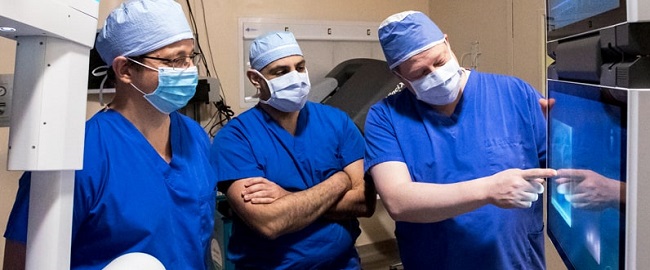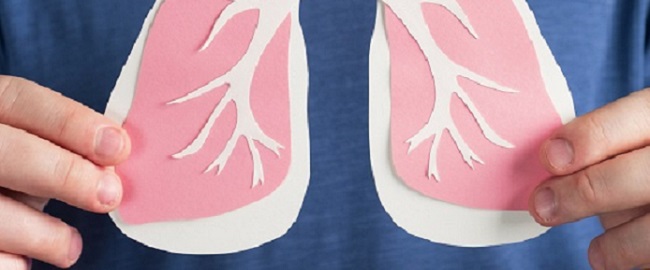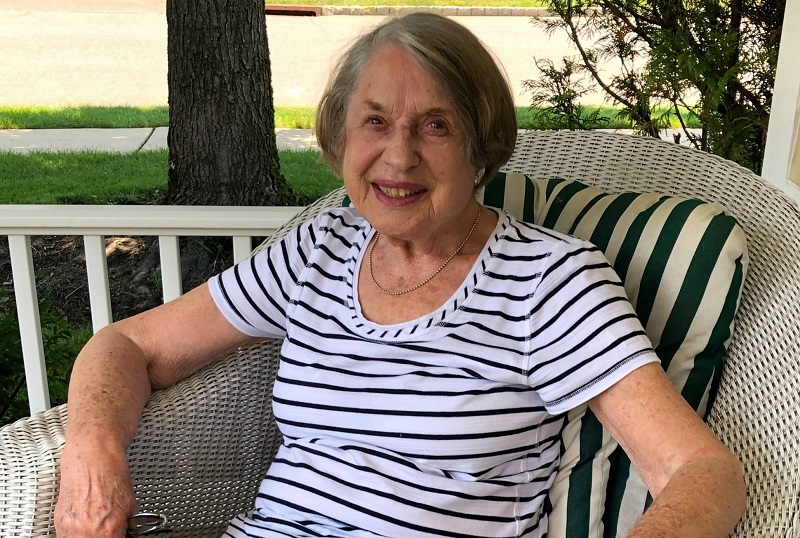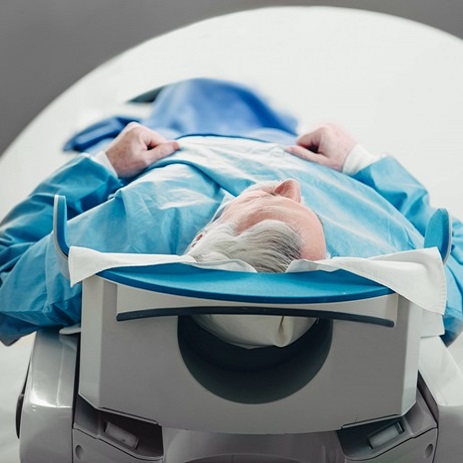Lung Cancer Care in New Jersey at Hackensack Meridian Health
At Hackensack Meridian Health, our lung cancer specialists use state-of-the-art imaging, robotic-assisted biopsy, and genetic profiling to provide a precise diagnosis. You’ll receive a personalized treatment plan tailored to your specific type of lung cancer, ensuring the best possible results.What is Lung Cancer?
Lung cancer is the second most common cancer in both men and women in the United States. It occurs when cells in one or both lungs grow abnormally and uncontrollably, forming cancerous tumors. The biggest risk factor for developing lung cancer is cigarette smoking, but other factors include:
- Tobacco use
- Exposure to secondhand smoke
- Asbestos or radon exposure
- Family history of lung cancer
At Hackensack Meridian Health, we are committed to providing advanced, personalized care to help you overcome lung cancer, no matter the cause.
What are the Symptoms of Lung Cancer?
Lung cancer often does not cause symptoms in its early stage. Over time, symptoms can develop. You should talk to your doctor if you have one of the following symptoms, which may be a sign of lung cancer or another lung condition:
- Chest pain
- Coughing up blood
- Cough that does not improve
- Hoarseness in your voice
- Shortness of breath
- Wheezing
Frequently Asked Questions
What are the common symptoms of lung cancer?
Lung cancer often does not cause symptoms in its early stages. However, as it progresses, you should see a doctor if you experience symptoms such as a cough that doesn't improve, chest pain, shortness of breath, wheezing, hoarseness, or coughing up blood.
What are the main risk factors for developing lung cancer?
The single biggest risk factor for lung cancer is cigarette smoking. Other significant risk factors include the use of other tobacco products, exposure to secondhand smoke, exposure to substances like asbestos or radon, and having a family history of lung cancer.
How is lung cancer diagnosed at Hackensack Meridian Health?
The specialists use advanced technology to provide a precise diagnosis. This includes state-of-the-art imaging, robotic-assisted biopsy to get a tissue sample, and genetic profiling of the tumor. This detailed approach allows them to create a personalized treatment plan tailored to your specific type of lung cancer.














